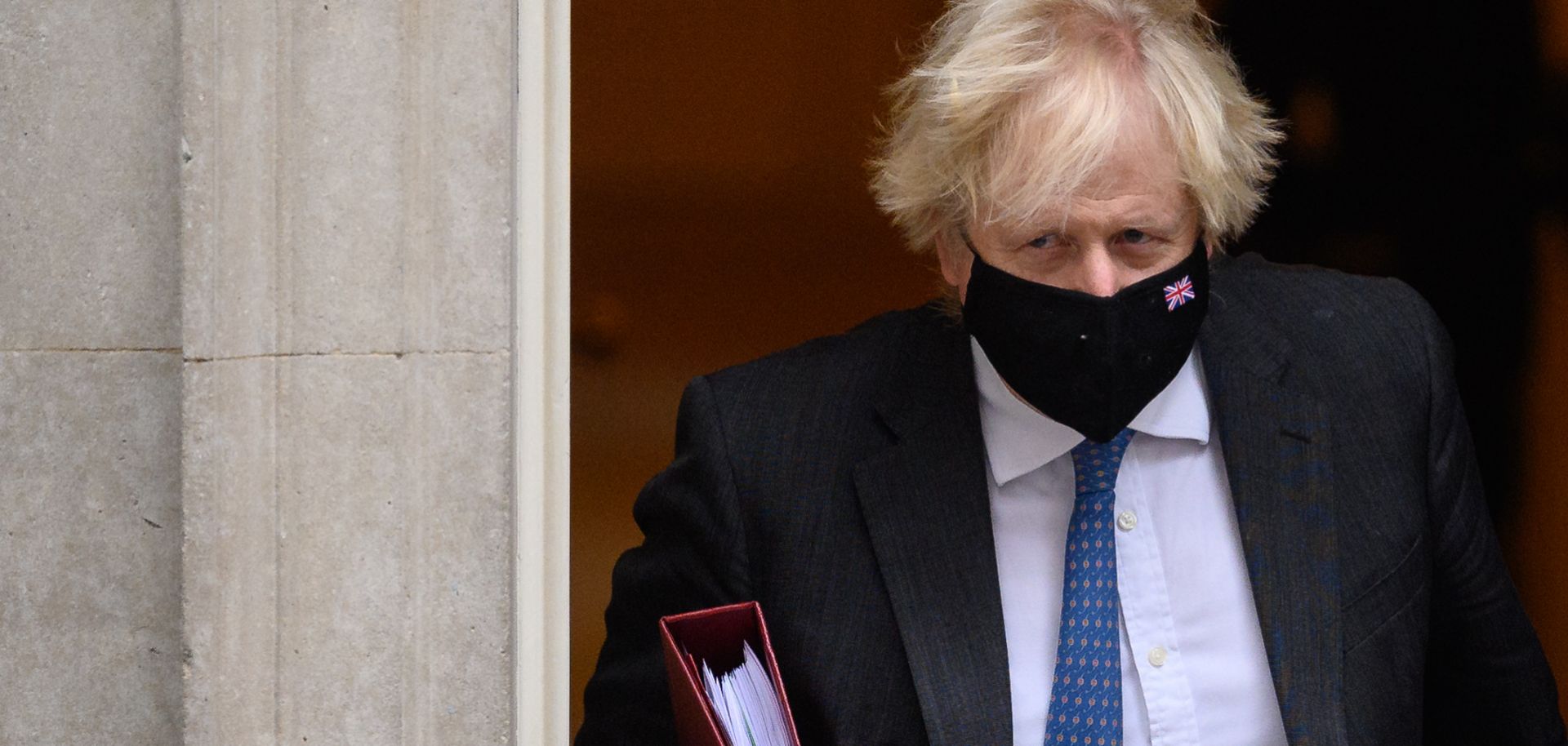U.K. Prime Minister Boris Johnson’s weakening political position will open the door to a de-escalation of disputes with the European Union because London will seek to avoid trade or supply chain disruptions during the holidays. Johnson’s political position has become increasingly fragile in recent weeks amid a succession of scandals that have generated discontent among the public and cast doubts within his Conservative Party about his government skills. This discontent became evident on Dec. 14, when 99 Conservative members of parliament voted against a plan to tighten COVID-19 restrictions in England, forcing the government to rely on support from the opposition Labour Party to approve it. This was the largest Conservative rebellion since Johnson’s landslide victory in the 2019 general election and took place amid U.K. media speculation that some party members are plotting to remove him from office. If Johnson is ousted, the future of U.K.-EU relations will depend...

